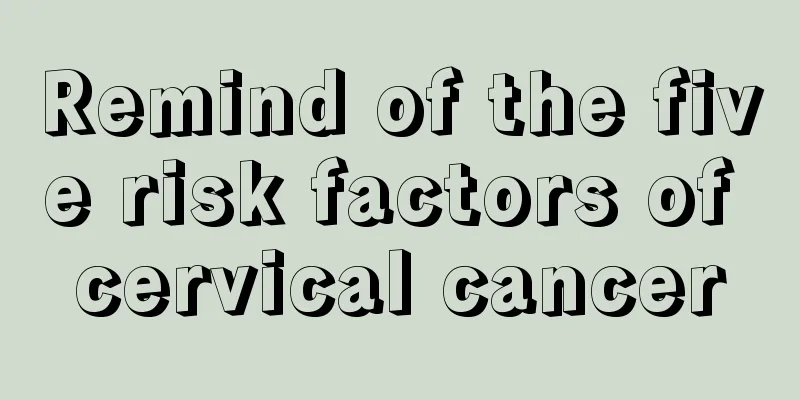What are the symptoms of gallbladder cancer

|
For many people, gallbladder cancer is not a simple disease. Although medical conditions are better now, it still takes some time to cure a disease like gallbladder cancer. We need to have a deeper understanding of a disease like gallbladder cancer, so we will introduce to you the symptoms of gallbladder cancer below. Gallbladder cancer has no specific clinical manifestations in the early stage, or only has symptoms of chronic cholecystitis, and early diagnosis is very difficult. Once persistent pain, mass, jaundice, etc. appear in the upper abdomen, the disease has reached the late stage, and various examinations also show abnormalities. Therefore, for patients with discomfort or pain in the gallbladder area, especially middle-aged and elderly patients over 50 years old with gallstones, inflammation, and polyps, regular B-ultrasound examinations should be performed to obtain an early and clear diagnosis. 1. Symptoms: 1. Right upper abdominal pain: Most cases are persistent pain in the right upper abdomen, which may be aggravated paroxysmically and radiate to the right shoulder and waist and back. This symptom accounts for 84%. Since gallbladder cancer often coexists with gallbladder stones and inflammation, the pain is similar to that of calculous cholecystitis, starting with discomfort in the right upper abdomen, followed by persistent dull pain or dull pain, sometimes accompanied by paroxysmal severe pain and radiating to the right shoulder. 2. Digestive tract symptoms: The vast majority (90%) experience indigestion, aversion to greasy food, belching, and decreased appetite, which is due to the gallbladder's inability to digest fat. Nausea and vomiting are also quite common, and there is often a loss of appetite. 3. Jaundice: Due to the spread of cancer, about 1/3 to 1/2 of patients develop jaundice. Jaundice is the first symptom in a few patients, and most jaundice occurs after pain. Jaundice is persistent and progressive, and a few patients show intermittent jaundice. Jaundice often appears in the late stage of the disease, accounting for 36.5%, mostly due to cancer tissue invading the bile duct and causing malignant obstruction. It is also accompanied by weight loss, fatigue, and even cachexia, yellowing of the skin and mucous membranes, and difficult-to-treat skin itching. 4. Chills and fever: It often occurs in the late stage of cancer. 25.9% of patients experience fever, and the high fever may persist. 5. Lump in the right upper abdomen: When the disease develops to the late stage, a mass appears in the right upper abdomen or upper abdomen, accounting for 54.9%. One is that the tumor grows rapidly, blocking the bile duct and causing the gallbladder to swell; the other is that it invades the duodenum and causes obstruction symptoms; in addition, if it invades the liver, stomach, pancreas, etc., masses may also appear in the corresponding parts. Gallbladder cancer may be rare for all of us, but we must recognize that the disease may happen to us at any time. Only if we have a good understanding of gallbladder cancer can we prevent this disease. Only in this way can we live a better life. |
<<: Where is the best hospital for treating gallbladder cancer?
>>: What is the age at which gallbladder cancer is most likely to occur
Recommend
What are the main symptoms of testicular cancer
The testicles are important reproductive organs f...
What are the benefits of probiotics?
People are always on guard against bacterial inva...
What foods are good for colon polyps?
Patients with colon polyps must pay attention to ...
Is finger pricking accurate for measuring blood sugar?
Most young people generally do not need to measur...
Patients should understand the treatment precautions of lymphoma as early as possible
Nowadays, more and more people are suffering from...
What causes insomnia?
Perhaps only the insomnia patients themselves can...
The golden point of human health and anti-aging
Core Tip: The golden ratio of 0.618 must be famil...
How to coax your baby to sleep after weaning
Babies are generally more dependent on their moth...
Overview of the harmfulness of fibroid disease
In the developed real world, many people know tha...
There are three pains in the early stage of bone cancer
The early symptoms of bone cancer are usually not...
What are the early symptoms of lung cancer
Cough is one of the most common symptoms of lung ...
Keep your health, do these 8 things no matter how busy you are
Being busy is a hallmark of modern life. We have ...
3 ways of language compensation after laryngeal cancer surgery
The larynx is an important organ of pronunciation...
What is the TG value after unilateral resection of thyroid cancer
Thyroid cancer is a malignant tumor that originat...
How to read urine routine test report
I believe that in daily life, most people don’t k...









